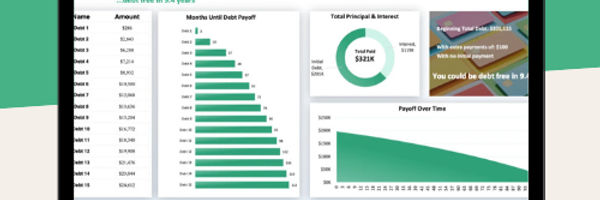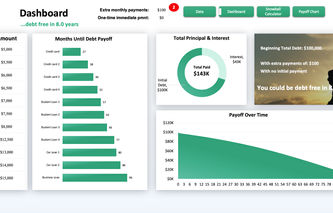| Name | Score | Visit | Annual Fee | Regular APR | Intro Offer | Credit Needed | Disclaimer | |
|---|---|---|---|---|---|---|---|---|
 | 10.0 | Visitrevenued.com | $0 | N/A | Earn $500 cash back after spending $5,000 in the first 3 months | No credit check |
The Revenued Business Card promises to break free from credit card conventions. With flexible credit limits and a refreshing lack of credit score requirements, this card is all about supporting subprime businesses.
Let’s dive into the key features, fees, and credit requirements to help you find the best corporate card for your business and decide if Revenued is the right fit for you.
This article will show you:
How Revenued differs from other business cards.
All you need to know about its credit line and rewards.
What customers are saying about the Revenued card.
Read more:
Revenued Business Card at a Glance
Full name: Revenued Business Card + Flex Line
Best for: Small businesses with fair or limited credit
Issuer: Sutton Bank
Required credit score: No credit check
What is the Revenued Business Card?
The Revenued Card + Flex Line is a combination of a prepaid card and a business line of credit designed for small business owners (think of the Flex Line as an extension of the card).
The card comes with no credit check, making it a tempting choice for all those with fair or limited credit history.
One of the key selling points of the Revenued Business Card is its Flexible Line.
Rather than offer a good old-fashioned credit line, Revenued’s Flex Line adapts to your business performance and revenue growth.
Revenued acts as a financing tool, as you can borrow money (extend your credit line) to fund your business growth.
The company makes this work by offering capital and then buying a portion of your future receivables at a discounted rate. This refers to a part of your future revenue (similar to collateral for a loan).
Due to their Flex Line and adaptable approach to financing, Revenued says they can help businesses struggling to get the cash flow they need.
By extending your credit line, you’re essentially getting a loan, which is great for those who’ve been denied financing due to their credit score. Just understand that this will likely come at a high cost.
How does the Revenued Card work?
The Revenued business card is for small businesses, with the automatic add-on of the Flex Line, giving you access to quick cash.
Here’s an overview of how the Revenued card works:
Check eligibility requirements: You can bag the Revenued card without a credit check. But your US-based business will need a minimum of $10,000 a month in sales and an average daily bank account of $1,000 to get accepted.
Apply for the Revenued Card: Start by checking the eligibility requirements and filling out an application online. The process is simple and requires basic information about your business, like tax returns and banking credentials.
Customize your card: Adjust the spending limits and cash draws to ensure responsible spending throughout your business. The financial management portal can help you maintain control over expenses.
Earn rewards: Revenued offers a generous rewards program with 3% cashback on all eligible purchases. Once you have a direct deposit of $10 or more, you can redeem your rewards via direct deposit.
Utilize the Flex Line: In exchange for a portion of your future business revenue, Revenued extends spending lines to support your financial needs. This lets you access funds quickly to boost your growth and operations.
Before we dive into the details, we asked an expert what you should look for in a business card.
As a business owner, you really want to be proactive about separating your personal and business expenses. And these cards can help streamline your accounting and even earn you great rewards or cash back on any business-related purchases.Dom Wells, CEO at Onfolio
Revenued Business Card: Quick Summary Review
Let’s start with a brief overview:
APR | 0% |
Annual fee | $0 |
Intro offer | Earn $500 cash back after spending $5,000 in the first 3 months |
Standard rewards | 3% cashback on all eligible purchases |
Overall rating | 5/5 |
Revenued Business Card Fees
It’s no easy task finding all the fees on the Revenued site. In fact, there’s a serious lack of transparency if you want to track down all the ins and outs of the card.
Lucky for you, we’ve done the legwork—and here’s the breakdown:
FEE | DETAIL |
|---|---|
Annual fee | $0 |
Processing fee | $0 |
Monthly maintenance fee | $0 |
APR | 0%* |
APR for cash advances | N/A |
Balance transfer fee | NA |
Cash advance fee | N/A |
Foreign transaction fee | $0 |
Late fee | $0 |
Minimum interest charge fee | $0 |
Returned payment fee | N/A |
Over limit fee | N/A |
Additional card fee | N/A |
*If you want to borrow beyond the prepaid amount, you’ll need to pay a finance charge.
As you can see, the Revenued card doesn’t come with any of the standard credit card fees.
But you’re not out of the woods just yet. If you use the Flex Line to increase your credit line, you’ll be lumped with finance charges based on your factor rate.
Factor rates typically range from 1.1 to 1.5, so you’ll be charged around 10% to 50% of the borrowed amount.
For example, a 1.2 factor rate means you’ll be charged 20% on the borrowed amount.
So let’s say you make a $10,000 purchase with a factor rate of 1.2. The finance charges would amount to $2,000 (20% of $10,000).
Remember
The Revenued card determines your spending line and factor rate by looking at your cash flow, past transactions, and annual revenue.
And let’s not forget about the bounce fees. When you make a purchase, your payment calendar will show the purchase cost and your daily payment amount.
Your payments are then automatically deducted from your bank account daily. But if a payment bounces without notice, you’ll be charged a $35 bounce fee.
Revenued Business Card: Pros & Cons
Pros
- No credit check.
- Online tools for managing finances.
- Quick access to funding.
- No annual fee.
- Generous cashback rates.
Cons
- Lack of fee transparency.
- Requires strong business revenue.
- Steep finance charges.
- No opportunity to build personal credit.
Pros: What We Like
No credit check
Instead of relying on your credit score, the Revenued card checks out your business revenue when determining eligibility.
So if your credit score is less than impressive, Revenued won’t hold it against you (just make sure your business figures stack up).
Online tools for managing finances
The Revenued Business Card offers a suite of user-friendly online tools to help you manage your finances.
From tracking expenses to setting spending limits, these tools simplify your accounting process, so you have more time to focus on boosting your business.
Quick access to funding
By extending your credit limit, you can borrow funds for your business needs and increase cash flow.
Revenued makes this happen by purchasing a portion of your future receivables (future revenue) at a discounted rate, giving you capital to support your business.
No annual fee
With the Revenued Business Card, you can benefit from financing without the annual fee hanging over your head.
There are also no APR rates or monthly charges to eat into your bottom line.
Generous cashback rates
The Revenued Business Card offers a rewarding 3% cashback on all eligible purchases.
So whether purchasing office supplies or booking travel, you can earn cash back to reinvest in your business’s growth.
Check out the top cashback rewards cards.
Cons: Things to Consider
Lack of fee transparency
The Revenued Business card makes it pretty clear that there are no annual or monthly fees—you only pay for what you use.
Sounds like a good deal? Well, the website fails to highlight how much you’ll be paying in finance charges when borrowing money.
Their FAQ page briefly mentions the factor rates but doesn’t specify what factor rate they charge and how much you’ll be forking out in a given time period.
Steep finance charges
This brings us to those finance charges. They’re based on the factor rate, which determines how much you’ll be charged for accessing funds.
Aspects that influence the factor rate include your business’s financial health, cash flow, and past transactions. The better these factors, the lower the rate you may be eligible for.
Make sure you consider the factor rate when deciding on financing options. Some factor rates may be relatively low (1.1 or 1.2). The faster you can repay the borrowed amount, the less expensive it’ll be.
Requires strong business revenue
While you don’t need to worry about credit checks, you’ll need strong business revenue to seal the deal.
To qualify, you’ll need a minimum of $10,000 per month in sales and an average daily bank account of $1,000. This is great for established businesses but could be challenging for startups or those with lower revenue.
No opportunity to build personal credit
While the Revenued Business Card can help build business credit, it won’t let you build personal credit.
Responsible usage and timely payments will mainly impact your business’s credit history and not your personal credit score.
Read more:
Revenued Credit Card: Things to Know
What are the Revenued business card requirements?
Before applying for the Revenued Business Card, make sure your business is ready to roll—
Business location: To be eligible, your business must be based in the United States.
Business bank account: Make sure you have a legit corporate bank account used for business transactions, like receiving payments and making purchases.
Positive bank account balance: You’ll have to ensure your bank account hasn’t gone negative for more than three days in a month. This demonstrates financial stability and responsible management of your business’ finances.
Operational duration: Your business should have been up and running for at least six months. You’ll have to prove your business has passed the rocky startup phase and has enough stability and revenue generation.
Minimum monthly revenue: You’ll need a minimum of $10,000 per month in sales and an average daily bank account of $1,000. This shows you have a steady cash flow and can manage the financial obligations of the Revenued card.
Remember
There’s no credit check when applying for the Revenue business card. So you’re free to apply with sub-par credit, as long as you meet the business requirements.
And when you apply for Revenued, you won’t experience the dreaded hard credit pull. You can rest easy knowing that the application won’t leave a mark on your credit report.
By sizing up these eligibility requirements, you can figure out if your business is ready to join forces with the Revenued Business Card.
Just take a moment to assess your financial situation so you’re not disappointed with the application outcome.
What is the Revenued business card credit limit?
The maximum amount you can spend using Revenued is $10,000 per day, $50,000 per month, and $10,000 per transaction.
Applying for increased spending limits works a little differently, though. When you apply for the Revenued card, you’re also getting the Flex Line as an automatic extension.
Instead of a fixed credit line, Revenued uses the Flex Line to tailor your credit limit to suit your business’s performance.
As your business flourishes, your credit limit can adapt and expand alongside it.
To achieve this financial magic, Revenued buys a portion of your future receivables at a discounted rate.
This could be a game-changer for supporting your financial needs, boosting growth, and keeping operations running smoothly.
And because there are no credit checks, Revenued can help businesses struggling to get the necessary cash flow.
Whether you’re a subprime borrower or on a journey to overcome debt, Revenued can open doors for your business.
Sounds handy—but there’s always a catch. When you tap into the Flex Line, brace yourself for the notorious finance charges.
These charges are determined by your factor rate (usually between 1.1 to 1.5), meaning they could charge you between 10% and 50% of your total bill.
Don’t overlook those expenses. If you get hit with a high factor rate, it might be worth applying to another card—even if it comes with high interest rates.
Check out more business cards:
How do the Revenued business credit card rewards work?
This one is simple—you get 3% cashback on all eligible purchases.
There are no confusing categories or point systems to wrap your head around. It really is as easy as that.
So where can you use the Revenued card?
You can earn cash back at gas stations, retailers, airlines, hotels, restaurants, utility companies, and golf courses.
There’s no minimum amount of eligible purchases required, with no cap on the maximum amount you can spend.
And the cashback rewards won’t be vanishing into thin air—they’re here to stay. So no need to rush and spend them all at once.
Just head to your Revenued dashboard at app.revenued.com. Once there, you’ll find the Rewards section, where you can keep track of your Pending Rewards and cashback amount.
If you want to earn rewards for your personal spending, check out these top cashback cards:
How does Revenued compare to other business cards?
Revenued sets itself apart from other business cards by accepting those with lower credit scores or a damaged credit history. Instead, they look at your business’s revenue and performance when you apply.
This can go either way depending on how well your business is doing.
For example, if you’re not making a monthly revenue of at least $10,000—you won’t make the cut.
What makes their approach even more unique is their Flex Line add-on.
Remember
While other business cards may have fixed credit limits, Revenued’s Flex Line adapts to your business’s revenue and growth. It also gives you a financing option if other lenders have denied you.
But this flexibility comes at a cost. Despite not having the interest and APR rates that come with other corporate cards, you’ll have to pay finance charges based on the factor rate.
So, as you weigh your options in the vast sea of business cards, keep in mind the unique features that Revenued brings to the table.
It’s about finding the best fit for your business’s financial journey and making sure you have the right tool to propel you toward success.
Is the Revenued Business Card legit?
Yes, the Revenued Business Card is a legitimate financial product for small businesses.
The company was founded in 2018 and is headquartered in the Greater New York Area.
Sutton Bank, the issuer behind the card, is a member of the FDIC and has built a reputable presence in the financial industry.
With trusted financial partnerships, they show their commitment to providing legitimate services to businesses.
However, the Revenued card has come under fire for its steep finance charges based on its factor rates.
Even with the generous 3% cashback and lack of annual fees, it might not be enough to offset these charges.
As with any financial product, we always recommend doing your research. Read customer reviews and check the terms and conditions to make sure it aligns with your business’s needs.
Revenued Card Customer Reviews
Despite those finance charges, Revenue has received a generally positive customer response.
On Trustpilot, they’ve earned themselves an excellent 4.6/5 from 562 reviews.
One customer pointed out how handy the financing features are, “Really great source of funding for my small construction firm and projects that require immediate payments for items of need.”
Another highlighted the fast and reliable customer service, “The preparation time by which the credit took and was awarded to our company was super. We greatly appreciate the point of contact that made us feel appreciated.”
And they weren’t the only one impressed with the service, “The customer service is exceptional, answering all questions clearly and thoroughly guiding you through the process. The use of their online portal is very simple and clearly shows what your payments will be and the full amount you are charged.”
But not everyone is singing their praises, “Not honest about cost and payments. They won’t let you change your payment method and will automatically deduct payments from your account—even when you tell them you want to change how you pay.”
And another customer claimed, “So many bumps make this card annoying. Can’t swipe more than $5,000, withdraw more than $10,000, and it goes to the underwriters again. Long time to get the funds. Just not practical.”
That being said, most of the positive reviews mention specific employees and how they helped them get financing or solve any issues.
So if you opt for the Revenued card, you can expect personalized assistance and support from one of their experts.
How Does the Revenued Business Credit Card Compare?
Revenued isn’t the only business card on the block. While it offers unique features, other corporate cards also come with their own perks.
Here’s a rundown of Revenued vs. Divvy vs. American Express Blue Business:
REVENUED BUSINESS CARD | DIVVY CREDIT CARD | AMERICAN EXPRESS BLUE BUSINESS CASH CARD | |
Annual fee | $0 | $0 | $0 |
Rewards | Earn 3% cashback on all eligible purchases | Up to 1.5x points on all other purchases Up to 2x points on software subscriptions Up to 5x points on hotels Up to 7x points on restaurants | Earn 1% cashback on all eligible purchases after you reach $50,000 in purchases per year Earn 2% cashback on all eligible purchases, up to $50,000 per year |
Intro offer | Earn $500 cash back after spending $5,000 in the first 3 months | N/A | N/A |
Visit site |
Divvy Credit Card
Unlike a standard credit card, the Divvy card operates as a charge card. This means you have to pay off your charges in full at the end of each billing period.
With Divvy, you can allocate spending limits to each employee and track their expenses in real-time. This nifty feature empowers small businesses to take control of their spending and effectively manage their budgets.
The Divvy card also rewards you for your business spending. With their rewards program, you can earn points on a weekly, semi-monthly, and monthly billing cycle.
These points add up quickly, with up to 7x points on restaurants, 5x on hotels, 2x on software subscriptions, and 1.5x on everything else.

Lay out your credit card debt with the minimum payments and interest to see how long it will take to pay off!
What you will get:
Interactive dashboard
Customizable to your needs
Stay on track with charts and graphs
Suitable for up to 16 or 32 debts!

American Express Blue Business Cash Card
With the American Express Blue Business Cash Card, you can earn up to 2% cashback on all eligible purchases.
And to sweeten the deal, you’ll enjoy a 0% introductory APR for the first twelve months on purchases and balance transfers.
However, that APR rate will shoot up once that introductory period ends. The rates range from 18.24% to 26.24%, so it’s crucial to plan ahead and factor in those rates as you move forward.
With its cashback rewards, introductory APR, and tailored benefits for small businesses, the American Express Blue Business Cash Card can be a valuable tool to fuel your entrepreneurial journey.
Just remember to stay on top of the rates and fees to make the most of this credit card’s offerings.
Revenued Business Card: Useful Links
Revenued card login.
Find out more about the Revenued card online.
Download the Revenued via Google Play or the App Store.
Check out the Revenued Cardholder Agreement.
Is the Revenued Business Credit Card Good For Me?
If you’re still on the fence, let’s make it easy for you—
Here’s who would be the best for the Revenued card:
Small businesses seeking a flexible credit line.
Those with fair or limited credit history.
Business owners who value simple cashback rewards.
Remember
The Revenued card offers a flexible credit line, making it a good option for small businesses that need quick access to funds.
The card also provides 3% cashback rewards on all eligible purchases (a pretty generous deal).
But don’t forget those extra finance charges, and be prepared to pay up to 50% of your total bill if you decide to take advantage of their unique Flex Line offering.

.jpg)




